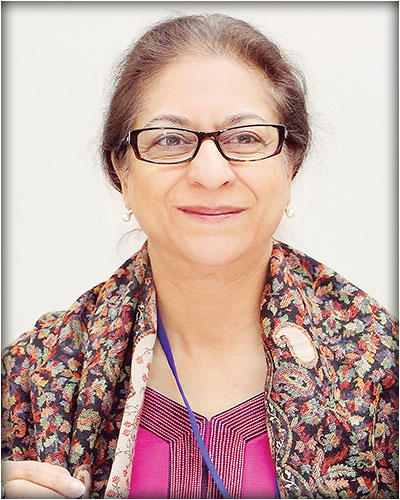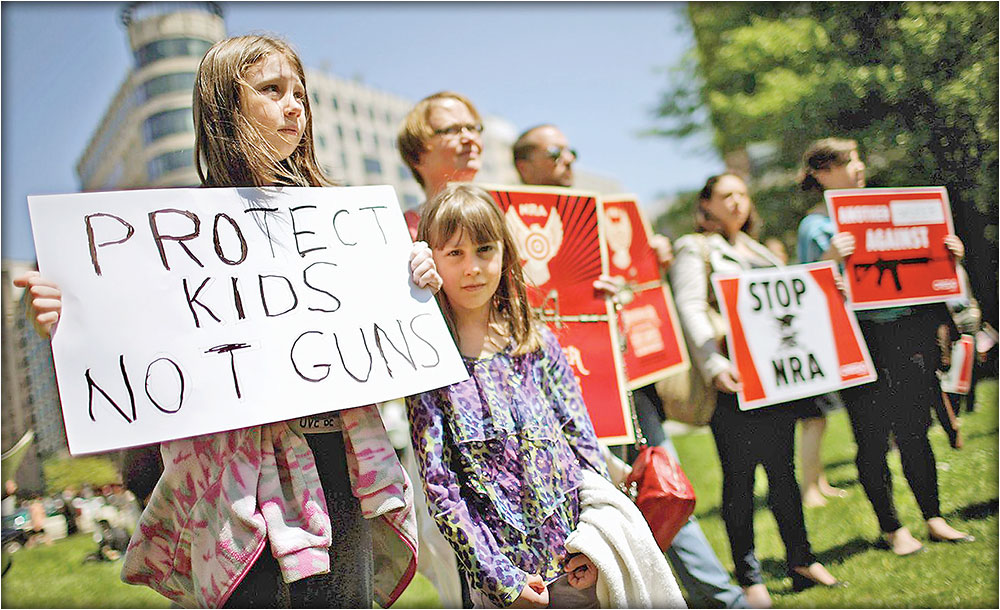MUSLIMS ENTER AMERICAN POLITICS
- 10 Nov - 16 Nov, 2018

My plan for this week’s column was to add my small voice to the chorus of posthumous praise for the great Pakistani human rights lawyer Asma Jehangir. I did not know her personally, and it’s not particularly appropriate for any foreigner to have much to say about such a widely cherished national treasure. But I will go ahead and offer here my small, belated contribution.
Asma first came to my attention when she defended and protected Salamat Masih, the Christian teenager whose death sentence under the blasphemy law was overturned by the Lahore High Court, the day before I first arrived in Pakistan, in February 1995, and who as a result had to flee into exile in Germany. During the period I lived in Lahore in 2003-04. The author Ahmed Rashid was kind to me, and it must have been at a party at his house that I remember seeing Asma, among many other luminaries such as Imran Khan, and being duly impressed. And it must have been through connections in such circles – Pakistan’s beleaguered liberal sliver, the category my friend, the journalist Beena Sarwar, once aptly described to me as “people like us” – that I was able to seek out Asma’s equally admirable, if lesser known, sister, Hina Jilani, for a conversation that I made a point of including in my book Alive and Well in Pakistan.
“One thing that I cannot tolerate is injustice,” Hina told me. “I fortunately still have the capacity to be outraged when there is injustice. My father was a politician, and he was always in the opposition, because he was always protecting some principle or other. I have been targeted personally. My sister has been targeted personally. My family was held hostage for two hours, in this house. We feel at least, if everybody keeps quiet, then who is going to take up those issues? That helps you get over the fear.”
Shootings in America
Speaking of beleaguered liberal slivers, my other compulsion this week is to write about the appalling murder, by a 19-year-old white supremacist named Nikolas Cruz, of 17 people, most of them teenage high school students, at a school in Florida on February 14. It was one of the worst so-called school shootings in American history, and the worst ever at a high school.

What to say about that? For starters, simply that we in America have a common phrase for such events – “school shootings” – is revealing. There is nothing defensible in such an action, either morally or politically, whatever the motivation. And arguably the first obligation of all elected officials is to ensure the physical safety of a country’s people. And the failure, or refusal, of elected members of the party in power in America – the Republicans – to address seriously the issue of gun violence is a glaring symptom of severe political dysfunction.
I follow the venerable novelist Joyce Carol Oates on Twitter, mostly because she posts charming photos of her own and other people’s cats. But just after the Florida shooting she spoke for many when she tweeted: “Invited by European publications to speak on issue of US gun violence but what is the point? Everyone knows our GOP politicians take bribes from NRA / gun manufacturers & dealers. Everyone knows US democracy is broken. Civilised world thinks we are pathetic w/ our loony POTUS.” (“GOP” is the Republican Party; “NRA” is the notorious and hugely influential National Rifle Association; “loony POTUS” is, of course, Trump.)
Like any right-thinking person, I oppose the murder of innocent schoolchildren. And I agree with the sentiments expressed by Joyce Carol Oates and many others on Twitter since February 14. But I find myself disturbed, in ways I can’t fully articulate, by how swiftly and thoroughly every school shooting morphs into raw material for ideological recrimination. Oates is a distinguished figure whose humane voice is amply deserving of being heard on the topic of American gun violence in European publications or anywhere else. But she’s right in asking, “What is the point?” And she’s right, too, to state forthrightly that U.S. democracy is broken, and that everyone knows it’s broken.
Especially given that, what I can’t fully articulate – partly because it risks giving aid and comfort to the aggressive and out-of-control American right wing – is that I’m not fully comfortable with the liberal chorus that chimes in after every school shooting, urging what’s known as gun control.
The slogan of gun rights advocates, on the other hand – “Guns don’t kill people; people do” – is glib. Trump himself citing mental illness as the culprit is particularly disturbing, given the widespread serious worries about his own mental health. And we’ve learned not to expect any moral or rhetorical leadership, on any subject, from this President of the United States. But for those of us on the other side to chime in, in the echo chamber of social media, urging “gun control” and trotting out the same old charts and graphs and arguments about gun ownership and the Second Amendment to the U.S. Constitution, is little more than futile posturing. Where does that leave us, though? America is a society so thoroughly at odds with itself that no real conversation can be had about such a literally life-and-death issue as how to keep schoolchildren safe from armed madmen.
The proliferation of deadly weaponry in the hands of extremists is among the strikingly large number of things that the United States and Pakistan have in common. I remember witnessing an English lesson in an Afghan refugee camp near Peshawar in which a picture of an AK-47 was used to help teach children to spell the word “g-u-n.” I myself once paid a local man in Derra Adam Khayl for the privilege of shooting an AK-47 at a mountainside.
The problem is that it’s too late. The guns are out there, in circulation, and wishfulness about mere policy changes is not going to change that. But one thing we all need is more courageous moral leaders like Asma Jehangir.
COMMENTS